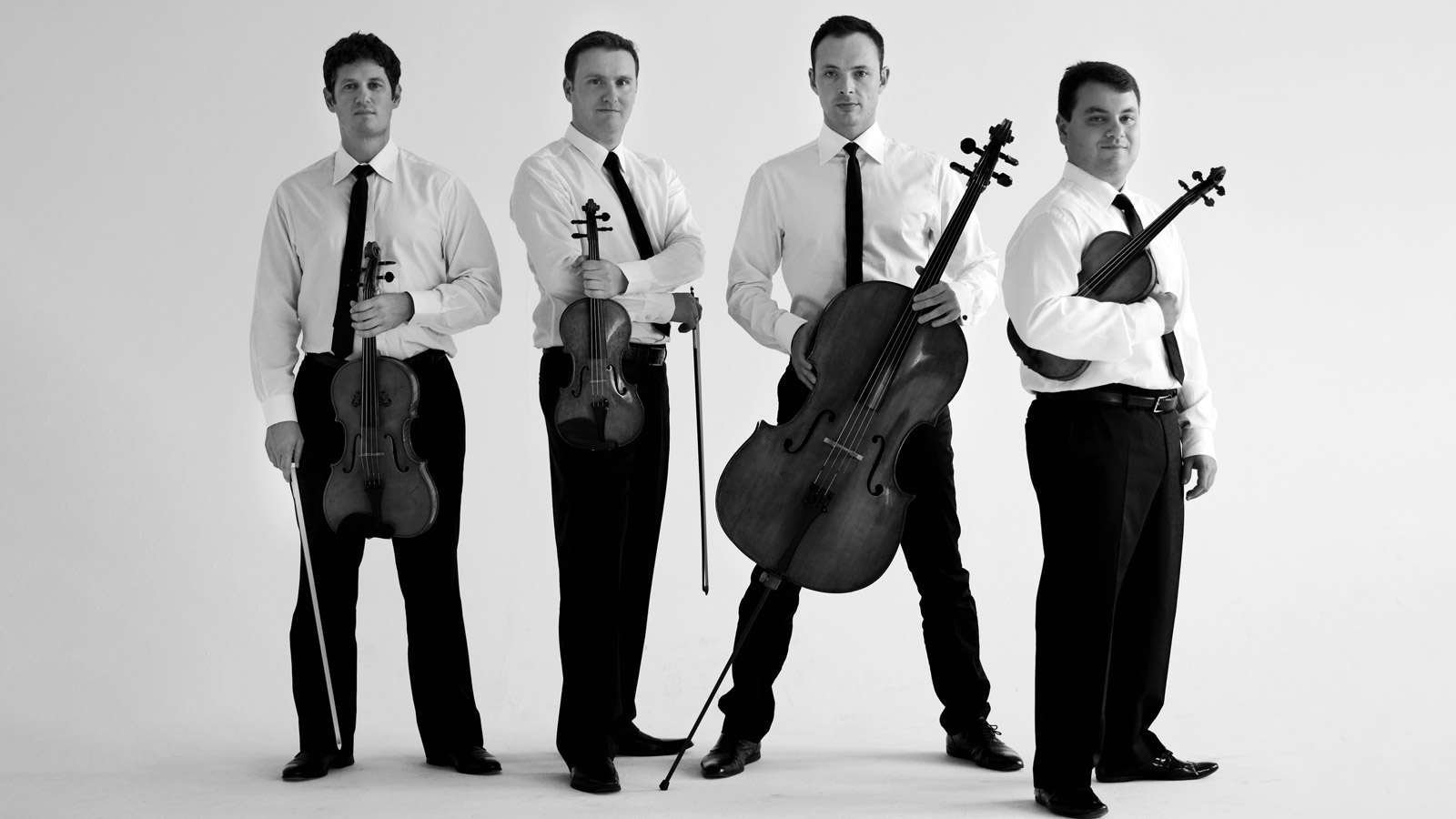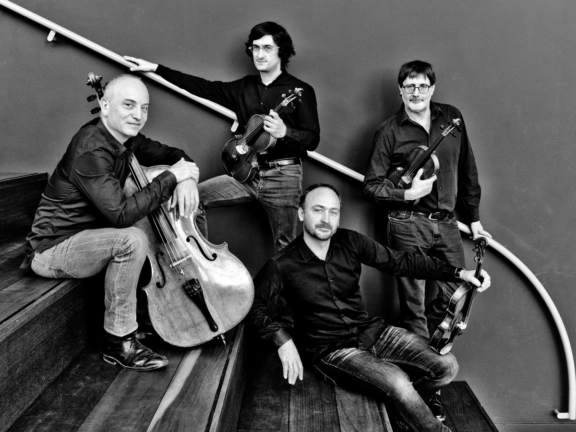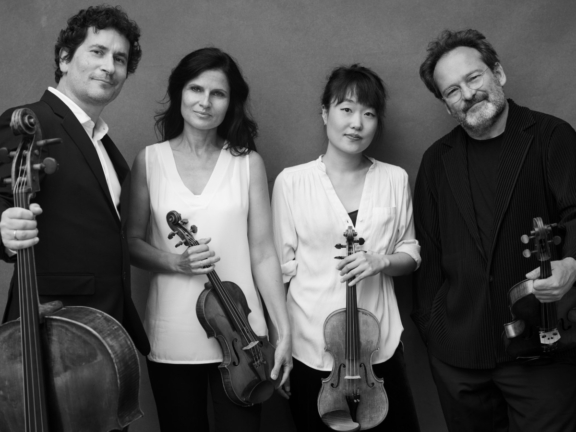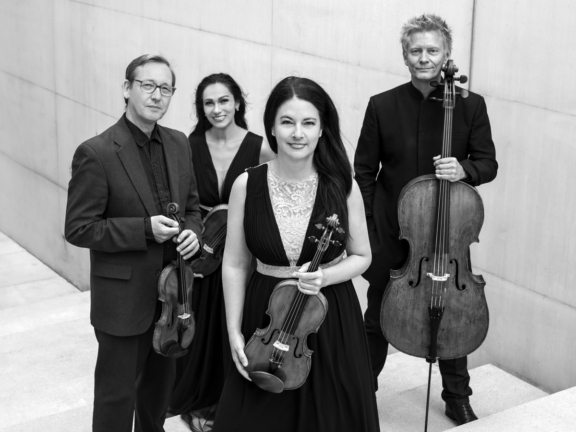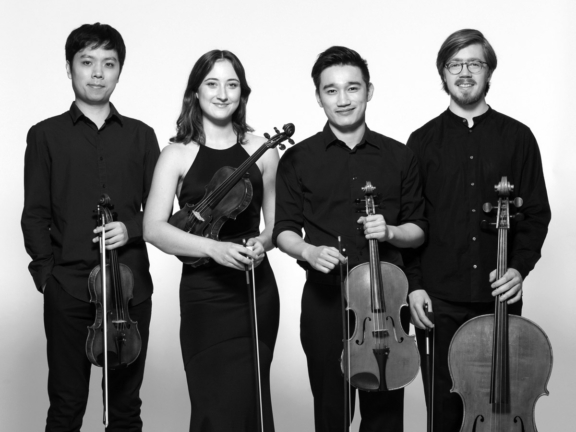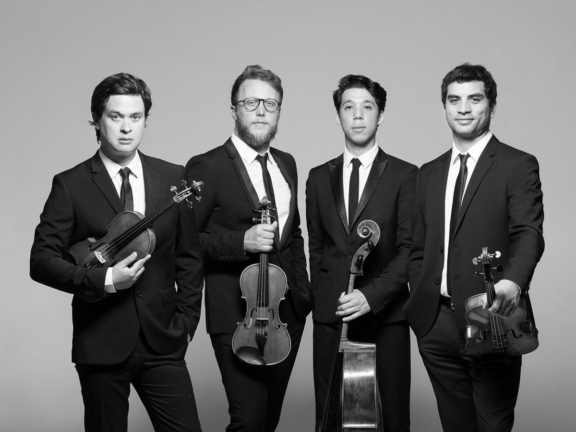
Jerusalem Quartet
String Quartets Festival
Event Slider
Date
- / Cancelled / Sold out
Location
Grand Auditorium Calouste Gulbenkian FoundationPricing
25% – Under 30
10% – Over 65
Cartão Gulbenkian:
50% – Under 30
15% – Over 65
- Alexander Pavlovsky Violin
- Sergei Bresler Violin
- Ori Kam Viola
- Kyril Zlotnikov Cello
-
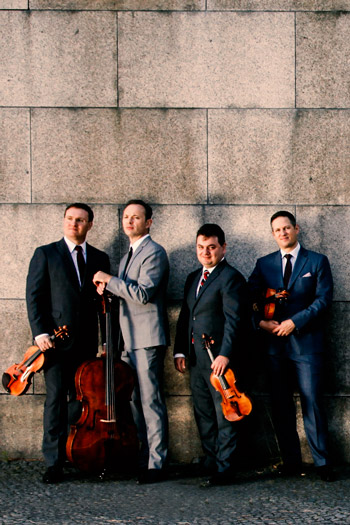
Jerusalem Quartet
Such was the New York Times' impression of the Jerusalem Quartet. Since the ensemble's founding in 1993 and subsequent 1996 debut, the four Israeli musicians have embarked on a journey of growth and maturation. This journey has resulted in a wide repertoire and stunning depth of expression, which carries on the string quartet tradition in a unique manner. The ensemble has found its core in a warm, full, human sound and an egalitarian balance between high and low voices. This approach allows the quartet to maintain a healthy relationship between individual expression and a transparent and respectful presentation of the composer's work. It is also the drive and motivation for the continuing refinement of its interpretations of the classical repertoire as well as exploration of new epochs.
The Jerusalem Quartet is a regular and beloved guest on the world's great concert stages. With regular bi-annual visits to North America, the quartet has performed in cities such as New York, Chicago, Los Angeles, Philadelphia, Washington, and Cleveland as well as in the Ravinia Festival. In Europe, the quartet enjoys an enthusiastic reception with regular appearances in all the prestige concert halls and at festivals such as Salzburg, Verbier, Schleswig-Holstein, Schubertiade Schwarzenberg or Rheingau.
The Jerusalem Quartet records exclusively for Harmonia Mundi. The quartet's recordings, particularly the albums featuring Haydn's string quartets and Schubert's "Death and the Maiden", have been honored with numerous awards such as the Diapason d'Or and the BBC Music Magazine Award for chamber music. In 2018, the quartet released two albums, an album of Dvorak's String Quintet Op.97 and Sextet Op.48, and a much-awaited recording of the celebrated quartets by Ravel and Debussy. In the spring of 2019, the quartet released a unique album exploring Jewish music in Central Europe between the wars and its far-reaching influence. Israeli Soprano Hila Baggio joined the quartet to perform a collection of Yiddish Cabaret songs from Warsaw in the 1920s. The quartet has commissioned composer Leonid Desyatnikov to arrange these songs, which are sung in Yiddish. Schulhoff's Five Pieces (1924), a collection of short and light cabaret-like pieces, and Korngold's Quartet No.2 (1937) are completing the program. In 2020, the Jerusalem Quartet released the second (and last) album featuring the whole Bartók cycle; both recordings were critically acclaimed.
Since 2019 the quartet has been touring together with Hila Baggio throughout Europe, presenting the Yiddish Cabaret; this will be continued in the season 2021/22. Also, they will perform the Enescu Octet with the Novus String Quartet (e.g. in Amsterdam and at the Schubertiade Schwarzenberg) and play concerts at the String Quartet Biennale’s in Paris and Lisbon, playing, among others, Dvorák’s String Sextet with Gary Hoffman and Miguel da Silva at Philharmonie de Paris. Other highlights of the upcoming season include a Beethoven cycle at Wigmore Hall in spring 2022, US-tours in November 2021 and spring 2022, an Asia tour in June 2022, as well as (re-)invitations to the Tonhalle Zürich, the Concertgebouw Amsterdam, the Elbphilharmonie Hamburg, the Warsaw Philharmonic and to the Schwetzinger SWR Festspiele.
Bedřich Smetana
String Quartet No. 1, in E minor, “From my life”
Dmitri Chostakovitch
String Quartet No. 2, in A major, op. 68
— Intermission 20 min —
Johannes Brahms
String Quartet No. 3, in B-flat major, op. 67
Continuing the partnership with the prestigious Biennial of String Quartets of the Philharmonie de Paris, Gulbenkian Música presents, over two days, a selection of reference formations in the field of chamber music. They will perform a wide and exciting repertoire, ranging from great classical and romantic composers such as J. Haydn, Beethoven and Brahms, to fundamental creators of the 20th century such as Webern, Chostakotivch and Prokofiev.
Sponsor Gulbenkian Music
The Calouste Gulbenkian Foundation reserves the right to collect and keep records of images, sounds and voice for the diffusion and preservation of the memory of its cultural and artistic activity. For further information, please contact us through the Information Request form.
